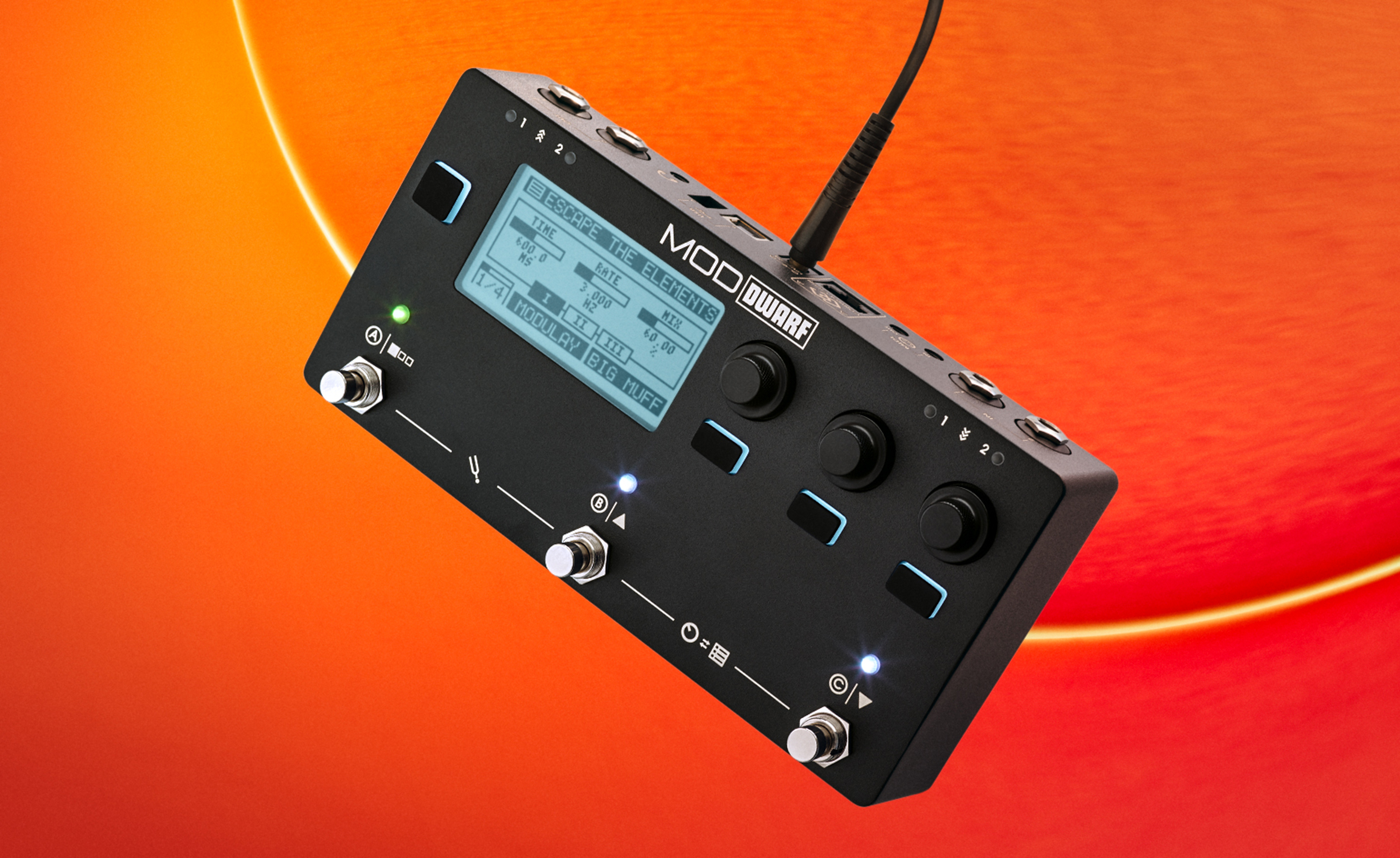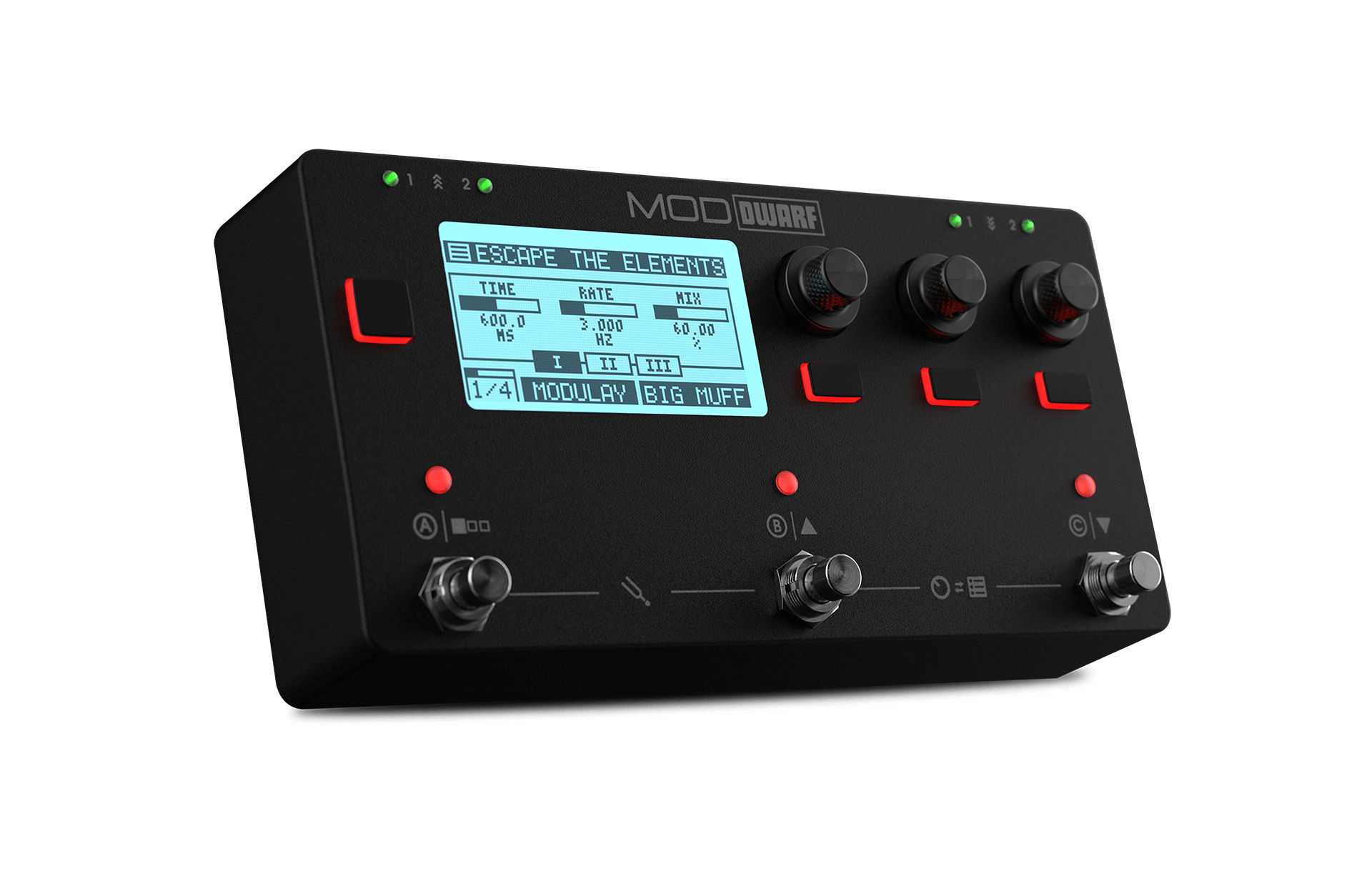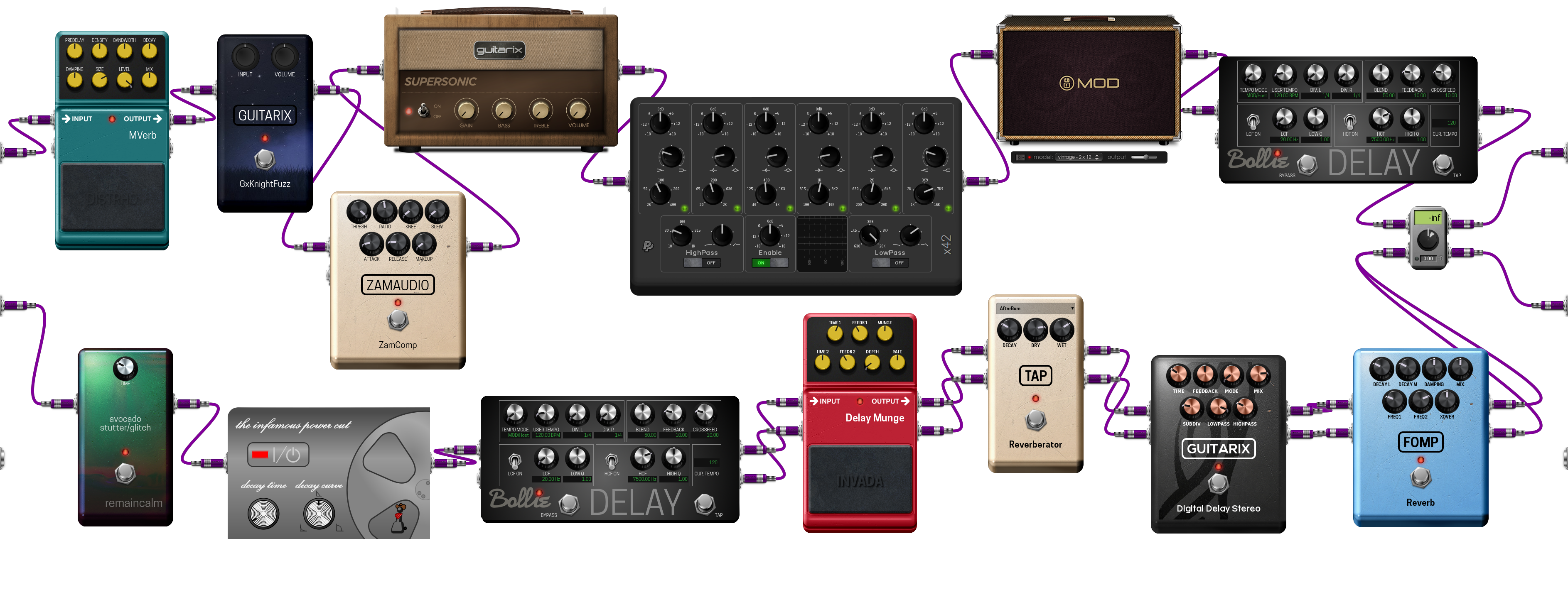MOD Devices’ open-source pedals play a different tune
Berlin-based Mod Devices creates a new generation of multipurpose audio tools
Amos Fricke - Photography

Our tech landscape may be dominated by carefully manicured walled gardens overseen by zealous tech titans, but at the coalface of creative tinkering, restrictions are the death of innovation. The future of sound is open source. The Berlin-based Mod Devices subscribes to the ethos that systems should be open to those with the time and skills to make a change. Mod builds effects processors for musicians of all stripes, with each device a building block for an unlimited sonic world. In layman’s terms, its digital boxes sit between instrument and amplifier, allowing players to layer different effects in infinite numbers of ways, as well as create their own.
‘I play the guitar and have tinkered with computers since 1990,’ says Gianfranco Ceccolini, who set up Mod Devices in Brazil in 2014. ‘When the first digital multi-effects units emerged in the 1990s, I tried many of them and was disappointed. They might have been digital, but the products were still very analogue, with pre-defined functions and no way to reprogramme them.’ Ceccolini’s dream was a processor that could run his own software.
Mod’s first product was the Quadra, a compact box aimed primarily at guitarists and bass players that wanted convenience and flexibility in one small package. Today, the company is 13-strong and has three core products, the Duo, Duo X and the new Dwarf, along with a burgeoning range of accessories. Half the workforce is based in Berlin’s House of Music, a former train depot that’s home to a number of music tech firms, while the rest work remotely around the world. Mod’s devices come to life when connected to a computer. Using a skeuomorphic interface, users build up complex chains of effects from around 400 options, from delays and reverbs through to synthesisers and sequencers. The resulting virtual ensemble, or pedalboard, is saved into the pedal, which can be used as a standalone device away from the computer, with a variety of ways to tweak and shape the sounds.

The Dwarf is a rugged, all-metal unit designed for simplicity on stage and flexibility in the studio
Mod’s industrial and graphic design ethos grew out of its ‘off-the-shelf’ approach, bringing together high-quality components with a Braun-like simplicity. ‘We’re highly driven by function,’ says Ceccolini. ‘I believe this is what makes our products so minimalistic compared to what they offer in terms of features. Ruggedness and durability are also important, because a musician needs to trust their equipment absolutely. In some ways, making hardware has never been so easy,’ he adds. ‘3D printing, fast prototyping and low-volume production are all accessible realities.’
To date, Mod has crowdfunded its prototypes, building up a buzz before selling through selected dealers. ‘We’re essentially a new segment for musical instruments, standing between traditional self-contained devices and laptops,’ says Ceccolini. ‘In the future, more and more creative people will be able to use technology that was designed with a very specific use in mind. Our purpose is to enable anyone to achieve any sound in any musical context.

A typical MOD Dwarf virtual pedalboard: unlimited sounds can be created by connecting over 400 different plugins
INFORMATION
Receive our daily digest of inspiration, escapism and design stories from around the world direct to your inbox.
Jonathan Bell has written for Wallpaper* magazine since 1999, covering everything from architecture and transport design to books, tech and graphic design. He is now the magazine’s Transport and Technology Editor. Jonathan has written and edited 15 books, including Concept Car Design, 21st Century House, and The New Modern House. He is also the host of Wallpaper’s first podcast.